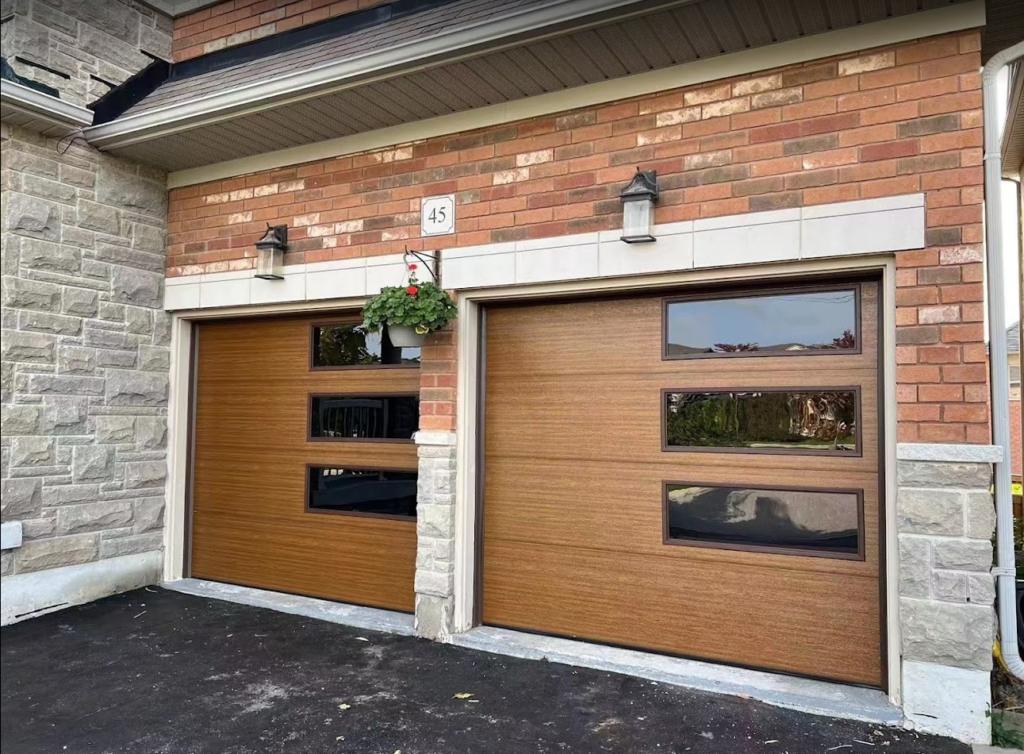Selecting the right material for your garage door is a decision that can impact your home’s aesthetics, durability, and maintenance requirements. With an array of materials available, each offering unique characteristics, it’s essential to understand their pros and cons to make an informed choice. In this comprehensive guide, we’ll delve into the world of garage door materials, helping you navigate through the options and choose the perfect material for your garage door.
Factors to Consider When Choosing Garage Door Material:
Before diving into the specifics of each material, consider these crucial factors:
1. Climate: Your region’s weather conditions play a significant role in choosing the right material. Some materials perform better in certain climates than others.
2. Aesthetics: The garage door is a prominent feature of your home’s exterior. Choose a material that complements your home’s architecture and style.
3. Maintenance: Different materials have varying maintenance requirements. Consider how much time and effort you’re willing to invest in upkeep.
4. Durability: Some materials are more resilient against wear and tear, while others may require replacement sooner.
5. Insulation: If energy efficiency is a priority, consider the insulation properties of the material.
Common Garage Door Materials:
- Steel:
Pros: Durable, low-maintenance, versatile in design, and can be insulated for energy efficiency.
Cons: Prone to dents and scratches, may rust over time if not properly maintained. - Wood:
Pros: Classic, natural beauty, can be customized, and provides good insulation.
Cons: Requires regular maintenance (painting/staining), susceptible to warping and rotting, can be expensive. - Aluminum:
Pros: Lightweight, rust-resistant, low-maintenance, suitable for contemporary styles, can be insulated.
Cons: Not as strong as steel, may dent easily, limited design options. - Fiberglass:
Pros: Resistant to dents and corrosion, doesn’t warp or rot, can mimic the appearance of wood.
Cons: Less common, may fade or discolor over time. - Vinyl:
Pros: Low-maintenance, resistant to dents and rust, good insulation properties.
Cons: Limited design options, may crack in extreme cold. - Composite:
Pros: Durable, moisture-resistant, can mimic the look of wood without the maintenance.
Cons: Limited availability, relatively new in the market.
Choosing the Right Material:
For Traditional Elegance: Opt for wood if you value the timeless charm of a wooden garage door.
For Low Maintenance: Steel, aluminum, vinyl, or composite doors are suitable options.
For Modern Aesthetics: Aluminum or glass doors can provide a sleek and contemporary look.
For Energy Efficiency: Choose insulated steel, fiberglass, or vinyl doors.
Choosing the right garage door material is a significant decision that combines aesthetics, functionality, and practicality. By considering climate, maintenance requirements, durability, and other key factors, you can narrow down your options and make an informed choice that enhances the curb appeal, energy efficiency, and overall functionality of your home. Whether you opt for the classic warmth of wood, the modern elegance of aluminum, or the durability of steel, understanding each material’s attributes will help you find the perfect garage door material that aligns with your preferences and needs.
Contact us at (647) 424-3555 for more information on choosing your garage door material!

